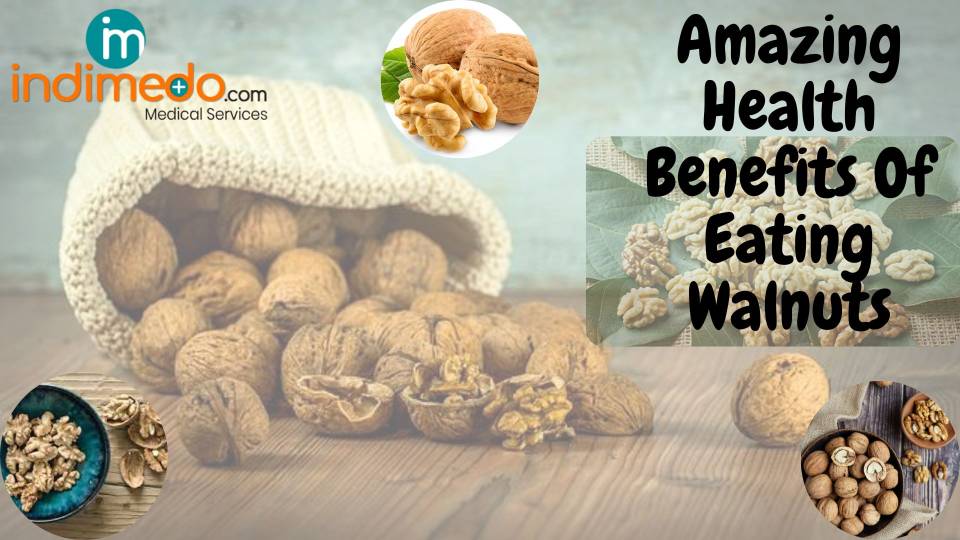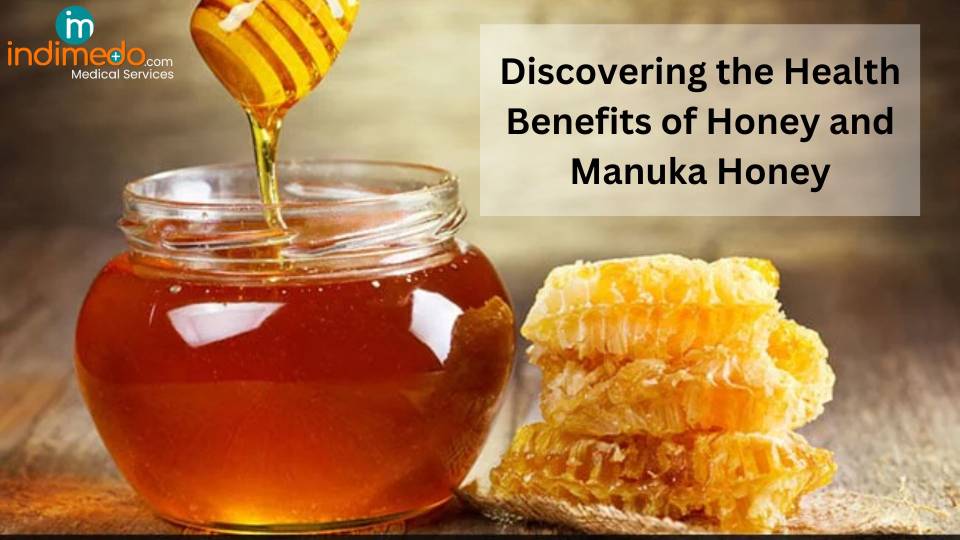Amazing Health Benefits Of Eating Walnuts

Walnut is a type of tree nut that is commonly eaten as a snack or used in cooking and baking. Walnuts are a rich source of nutrients and healthy fats, making them a popular ingredient in many types of cuisine.
Walnuts have a hard outer shell that must be cracked open to access the edible kernel inside. The kernel is covered by a thin, brown skin that can be bitter, but is usually left intact when consuming the nut.
Walnuts can be eaten raw or roasted and are a popular ingredient in salads, baked goods, and desserts. They can also be used to make walnut butter or added to smoothies for added nutrition.
Due to their high content of healthy fats, fibre, vitamins, and minerals, walnuts have a range of health benefits, including supporting heart health, improving brain function, and promoting weight management.
Walnuts Nutrition
Walnuts are a nutrient-dense food that provides a range of important vitamins, minerals, and other beneficial compounds. Here are some key nutritional facts about walnuts:
-
Healthy Fats: Walnuts are high in healthy fats, particularly omega-3 fatty acids, which are important for heart and brain health.
-
Protein: Walnuts are a good source of plant-based protein, which is important for building and repairing tissues.
-
Fibre: Walnuts are a good source of fibre, which is important for digestive health and may help lower cholesterol levels.
-
Vitamins and Minerals: Walnuts are rich in a variety of vitamins and minerals, including vitamin E, magnesium, phosphorus, and manganese.
-
Antioxidants: Walnuts are high in antioxidants, including polyphenols and vitamin E, which help protect against oxidative stress and inflammation.
-
Calories: Walnuts are calorie-dense, with about 200 calories per ounce. However, research has shown that incorporating walnuts into a balanced diet may not lead to weight gain and may even aid in weight loss.
Overall, walnuts are a nutritious and versatile food that can be enjoyed on their own as a snack or added to a variety of recipes for added flavour and nutrition.
Benefits Of Eating Walnuts
Walnuts are the nutritious nut that provides a range of health benefits. Here are some of the top health benefits of consuming walnuts:
-
Heart Health: Walnuts are rich in heart-healthy omega-3 fatty acids, which help reduce inflammation and lower blood pressure, cholesterol levels, and the risk of heart disease.
-
Brain Function: The high levels of antioxidants and omega-3 fatty acids in walnuts may help protect the brain from age-related decline and improve cognitive function.
-
Diabetes Control: Walnuts may help improve insulin sensitivity and reduce the risk of developing type 2 diabetes.
-
Weight Management: Despite their high-calorie content, studies have shown that incorporating walnuts into a balanced diet may not lead to weight gain and may even aid in weight loss.
-
Cancer Prevention: The antioxidants in walnuts may help reduce the risk of certain types of cancer, including breast, prostate, and colorectal cancer.
-
Bone Health: Walnuts are a good source of calcium, magnesium, and phosphorus, which are important minerals for bone health and may help prevent osteoporosis.
-
Skin Health: The vitamin E and other antioxidants in walnuts may help protect the skin from damage caused by environmental factors and reduce the signs of ageing.
Overall, adding a handful of walnuts to your daily diet can provide a variety of health benefits and contribute to a well-rounded and nutritious diet.
Omega-3 In Walnuts
Walnuts are a rich source of omega-3 fatty acids, which are a type of healthy fat that is essential for good health. Omega-3s are a type of polyunsaturated fat that is found in certain types of fish, as well as in some plant foods like walnuts.
Omega-3s are important for a variety of functions in the body, including supporting heart health, reducing inflammation, and improving brain function. The three main types of omega-3 fatty acids are alpha-linolenic acid (ALA), eicosapentaenoic acid (EPA), and docosahexaenoic acid (DHA).
Walnuts are particularly high in ALA, which is a type of omega-3 that the body can convert into EPA and DHA, although the conversion process is not very efficient. Nonetheless, studies have shown that consuming walnuts regularly can increase levels of EPA and DHA in the body, especially in people who don't consume much fish.
A one-ounce (28-gram) serving of walnuts contains about 2.5 grams of ALA, which is about 150% of the daily recommended intake for most adults. Incorporating walnuts into your diet is a great way to boost your intake of omega-3s, especially if you don't consume many fish or other sources of these essential fatty acids.
Antioxidants In Walnuts
Walnuts are a rich source of antioxidants, which are compounds that help protect the body against damage caused by harmful molecules known as free radicals. Free radicals can damage cells and contribute to ageing, inflammation, and a range of diseases.
Walnuts are particularly high in a type of antioxidant known as polyphenols, which are found in the skin and outer layer of the nut. Polyphenols are a diverse group of compounds that have been shown to have a range of health benefits, including reducing inflammation, improving heart health, and protecting against certain types of cancer.
Walnuts also contain other antioxidants, including vitamin E and selenium, which work together with polyphenols to protect against oxidative stress and inflammation.
Research has shown that incorporating walnuts into your diet can increase levels of antioxidants in the blood and reduce markers of oxidative stress. This suggests that consuming walnuts regularly may help protect against a range of diseases, including heart disease, cancer, and cognitive decline.
Overall, the high levels of antioxidants in walnuts make them a nutritious and beneficial food to include in your diet.
Carbs In Walnuts
While walnuts are not a low-carb food, they are relatively low in carbohydrates compared to other nuts. One ounce (28 grams) of walnuts contains approximately 4 grams of carbohydrates, of which 2 grams is fibre. This means that one ounce of walnuts provides only 2 grams of net carbs (total carbs minus fibre).
Walnuts are also a good source of protein, healthy fats, vitamins, and minerals, making them a nutritious addition to a balanced diet. Additionally, the fibre content in walnuts can help slow the absorption of carbohydrates and promote feelings of fullness, which may be beneficial for managing blood sugar levels and supporting weight management.
Calories In Walnuts
Walnuts are a nutrient-dense food, which means they contain a relatively high amount of nutrients for the number of calories they provide. One ounce (28 grams) of walnuts contains approximately 183 calories.
While walnuts are relatively high in calories compared to some other nuts, they are also a good source of protein, healthy fats, fibre, vitamins, and minerals. The healthy fats found in walnuts, such as omega-3 fatty acids, may have beneficial effects on heart health and brain function.
It's important to note that portion control is key when it comes to consuming nuts. While walnuts can be a healthy addition to a balanced diet, eating too many can lead to excess calorie intake and potential weight gain. One serving of walnuts is typically considered to be one ounce or about a handful.
Conclusion
In conclusion, walnuts are a nutritious food that provides a range of health benefits. They are rich in healthy fats, protein, fibre, vitamins, and minerals, making them a good addition to a balanced diet. Some of the potential health benefits associated with consuming walnuts include improved heart health, brain function, and blood sugar control, as well as a reduced risk of certain types of cancer.
Walnuts are also versatile ingredients that can be enjoyed in a variety of ways, such as in baked goods, salads, and snack mixes. While walnuts are relatively high in calories compared to some other nuts, portion control is key to reaping their health benefits without overconsuming calories.
Overall, incorporating walnuts into a healthy and balanced diet can be a delicious way to support optimal health and well-being.





 Login with Facebook
Login with Facebook
 Login with Google
Login with Google